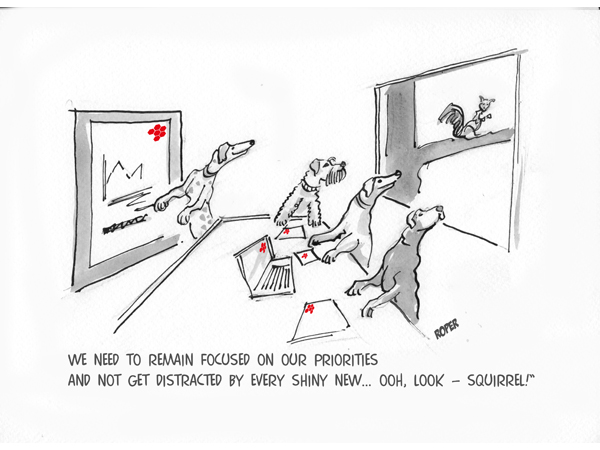At Leaders Lab we’re not big fans of New Year’s Resolutions. This is because usually and unwittingly you set yourself up to fail.
This year instead, we’d like to shift the focus away from failing at your New Year’s Resolutions to working on your New Year’s Resilience – especially your mental resilience.
What are we all so worried about?
It’s a curious phenomenon that humans today are more prone to anxiety than at any other point in history.
Why is this? Surely the threats we all face (though numerous and real) are not that much greater than the perils of war, disease and famine that have littered our history?
The problem we have is that the modern world is set up to breed anxiety. Our society and culture, the things that we read, watch and doom scroll every day are designed to induce a response from the limbic cortex in our brain. And this is the part of our brain (sometimes referred to as the Lizard brain) that is in charge of our most basic responses including fear, fight, flight and freezing up.
The mass media and our appetite for 24-hour, disaster-focused global news plays a part in this, so too does our own quest for perfection. We want to cure cancer, live life to the full, be happy all the time; and because we can’t, we become dispirited and disappointed.
We are also less likely to be a part of a tight knit community. Our modern individuality gives us freedom, but it also takes away our options and our ability to rely on others when times are hard. Anxiety therefore is hard-wired into modern life.
How do we build resilience?
Interestingly, we become more resilient when we are exposed to difficult situations that we subsequently deal with successfully. A research study by BetterUp concluded that their members increased their overall resilience by 17% throughout the COVID 19 pandemic.
We also know about the need to do things outside of your comfort zone in order to feel fulfilled.
Physical resilience is tangible. We know we need to eat well, get enough exercise and sleep, watch our intake of alcohol and other stimulants, get out into the fresh air, and be exposed to natural light and to nature.
Spiritual resilience is arguably more challenging. We need to find a purpose in life, nurture our self-belief and optimism and develop our support networks.
Mental resilience is often conflated with spiritual resilience. But while there may be some overlap, we believe they are distinct. Just because you can get into the lotus position it doesn’t mean you can effectively deal with Sam in Accounts.
We also believe there is a ‘technology’ for managing your mind, and below are 5 points to consider:
Manage your mindset
We all have the internal voice, the inner critic. Whether you call it ‘the parrot on your shoulder’ or ‘the chimp on your back’ you can never make it go away entirely. But you can work at understanding where it came from, and you can dial down the volume. If you have a coach, they can challenge you on some of the beliefs that you don’t question, that play into this internal critic and that are holding you back.
Be authentic
We all present ourselves differently and behave differently in a range of circumstances and with a range of people. That is a fundamental part of both self-awareness and empathy with others. However, the problems and stress begin whenever we go way beyond our range of behaviour, turn our back on our values and become inauthentic. And the bigger the gap between what we are and what we purport to be, the bigger the strain.
Re-frame ‘threats’ as challenges
The physiological response to what we perceive as a ‘threat’ is not sophisticated. Our fear of public speaking isn’t life threatening so we need to manage our mind, and consequently our response, accordingly.
When we see something as a challenge, we recognise the possibility of growth. We also perceive that we have the resources to deal with that situation.
That view results in feelings of energy, anticipation, and excitement. These feelings tend to mobilise people for action and problem-solving.
Set goals (not resolutions)
To feel a greater sense of control over your professional and personal life, set some goals for yourself. And make them SMART (specific, measurable, achievable, realistic and timed). Practise the discipline of holding yourself to account for working towards them, rather than letting them drift. Even if your circumstances change and you have to change course, you still have your plan.
Nurture the character traits that make you more resilient
There’s a tendency to think that your personality is ‘set’. But we know now that the brain is plastic and constantly reinforcing and creating new synapses. If you can increase your self-awareness, so that you catch yourself having a ‘catastrophic’ thought and consciously think a different one then over time you change your mental map. Even if you’re sceptical about ‘positive psychology’ it’s still worth managing your thoughts to reinforce your sense of humour, adaptability, tolerance and optimism.
Building mental resilience starts with increasing your self-awareness. Who are the people who rub you up the wrong way? In what circumstances, and what is your part in this dynamic? What if you reacted differently? What if you saw this as an opportunity rather than a threat?
If you don’t have a coach to challenge you and ask you open questions, then do that for yourself. And if you know you are stuck in a particular way of thinking, you can ask a colleague or a friend to hear you out, so that you can articulate and question your thoughts and concerns.
Practice good mental habits and you become more resilient.
If you’d like to discuss any of the issues in this article, do get in touch with us at Leaders Lab on 07770 221166.
